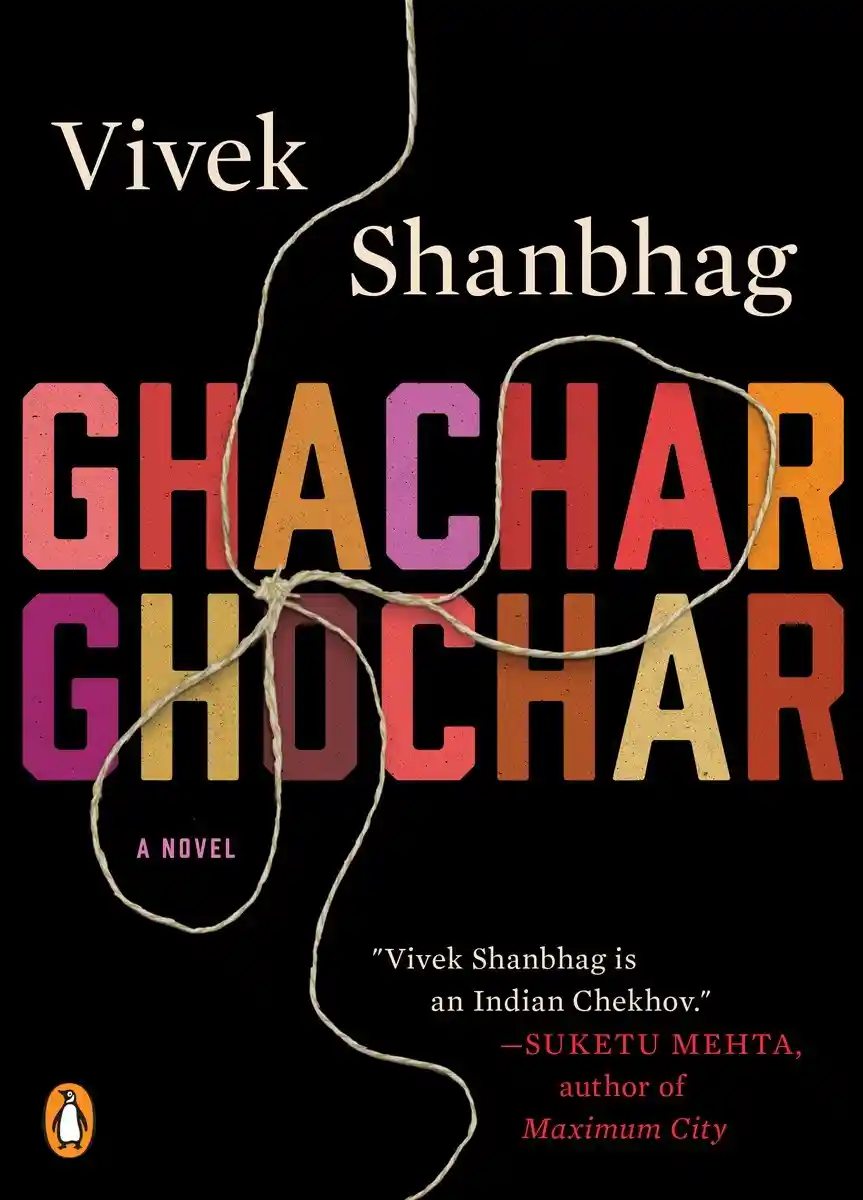Beyond Fiction: 'Ghachar Ghochar' and the Realities of Sudden Wealth
'Ghachar Ghochar' delves into the life-altering shift of a family's fortunes in Bangalore. Vivek Shanbhag's novella resonates universally, exploring the complexities that arise with newfound wealth– from changing power dynamics to strained relationships. As the family grapples with greed and ambition, their story mirrors real-world instances of how money can redefine lives and unravel bonds.

Book Coat | Source: Good Reads
In the bustling urban landscape of Bangalore, Vivek Shanbhag's novel Ghachar Ghochar opens a window into a universal dilemma– the transformation of a family's fortunes and the crises that follow newfound wealth. This tale resonates far beyond its pages, highlighting the delicate interplay of money, power, and human relationships. As we delve into the lives of this Indian family, we're confronted with a theme that extends well beyond fiction, the consequences of sudden affluence. In societies worldwide, the influx of wealth often redefines relationships, challenging established dynamics and unearthing hidden conflicts.
The narrative here becomes particularly poignant when viewed against the backdrop of real-world incidents. Consider the stories of lottery winners whose lives take unexpected turns after hitting the jackpot. The initial euphoria gives way to tension, strained relationships, and even financial ruin. Shanbhag's portrayal mirrors these accounts, revealing how money can unveil the true nature of people and test their bonds. The family's patriarch, Appa, embodies the lure and pitfalls of wealth. As the family's fortunes shift, he undergoes a transformation – from a simple man to someone consumed by his newfound affluence. This change is a stark reminder of the human tendency to lose oneself in the pursuit of wealth. It's a theme that echoes across cultures and eras– from historical narratives of opulent monarchs to modern stories of business magnates.
Sarasa's evolution from contentment to ambition speaks to the broader societal shift toward materialism. This shift is not confined to fiction; it's a reality that societies worldwide grapple with. Advertisements, social media, and peer pressure often fuel desires for more, fostering a cycle of consumption that can corrode the fabric of families and communities. The characters' dependence on Appa mirrors a widespread issue – the power imbalances that money creates within families. In reality, inheritances and financial disparities often lead to tensions and conflicts. Parents may exert control, shaping the destinies of their children. These dynamics play out in boardrooms, homes, and even political corridors, affecting lives on both personal and societal levels. Raju's abrupt departure, catalysed by the family's shifting fortunes, mirrors the precarious existence of domestic workers in many parts of the world. Their reliance on the financial stability of their employers often leaves them vulnerable to abrupt changes in circumstances. Such incidents underline the intricate web of connections that exist within societies, where the choices of the privileged can have far-reaching consequences.
The title Ghachar Ghochar itself – a term invented by the family to describe their tangled situation – encapsulates a feeling that transcends cultures. It represents the emotional chaos that accompanies shifts in financial stability. This feeling is familiar to anyone who has experienced a sudden change in circumstances, be it positive or negative – and found themselves struggling to adapt.
Ultimately, this book serves as a mirror to the broader truth that transcends fiction – money, while a means to an end, is also a catalyst for change. The novella's exploration of familial discord, shifting power dynamics, and the erosion of values reflect real-world challenges faced by families, communities, and societies worldwide. Shanbhag's narrative offers us an opportunity to reflect on our own lives and the societies we inhabit. As we journey through the pages of Ghachar Ghochar, we're prompted to question our own reactions to changing fortunes and the potential consequences of our desires. The family's crisis becomes a metaphor for the broader crises that lie dormant within the tapestry of human relationships– a reminder that every financial gain comes with an inherent cost, one that extends far beyond monetary value.


